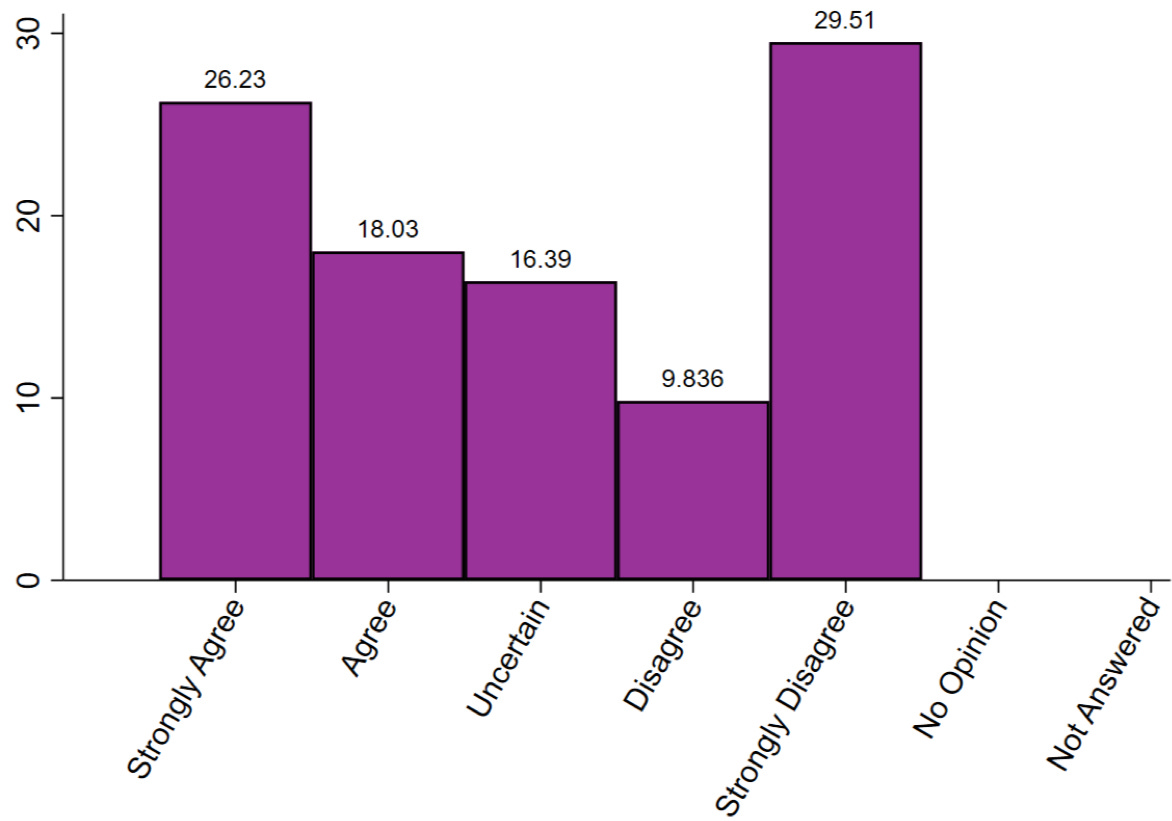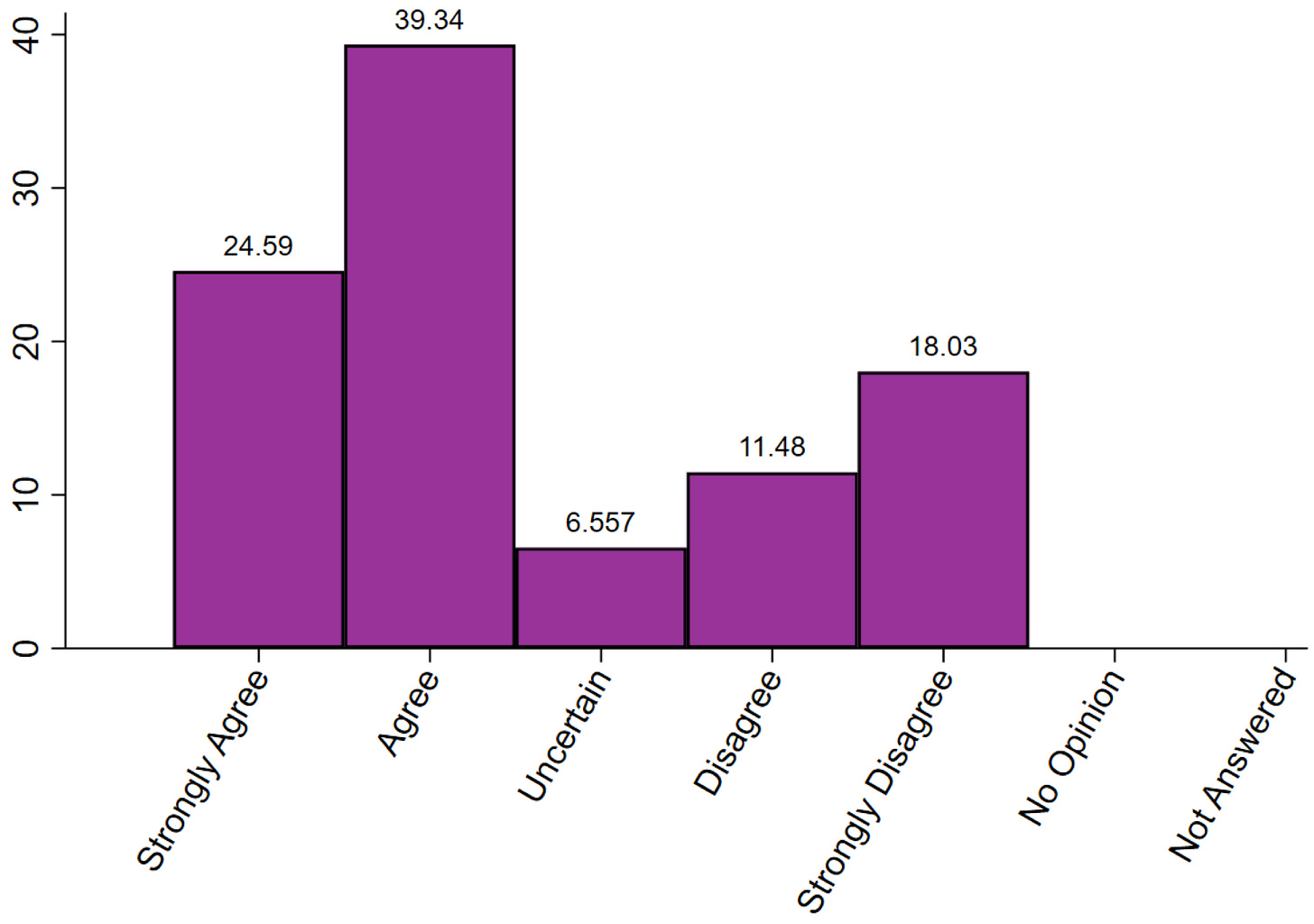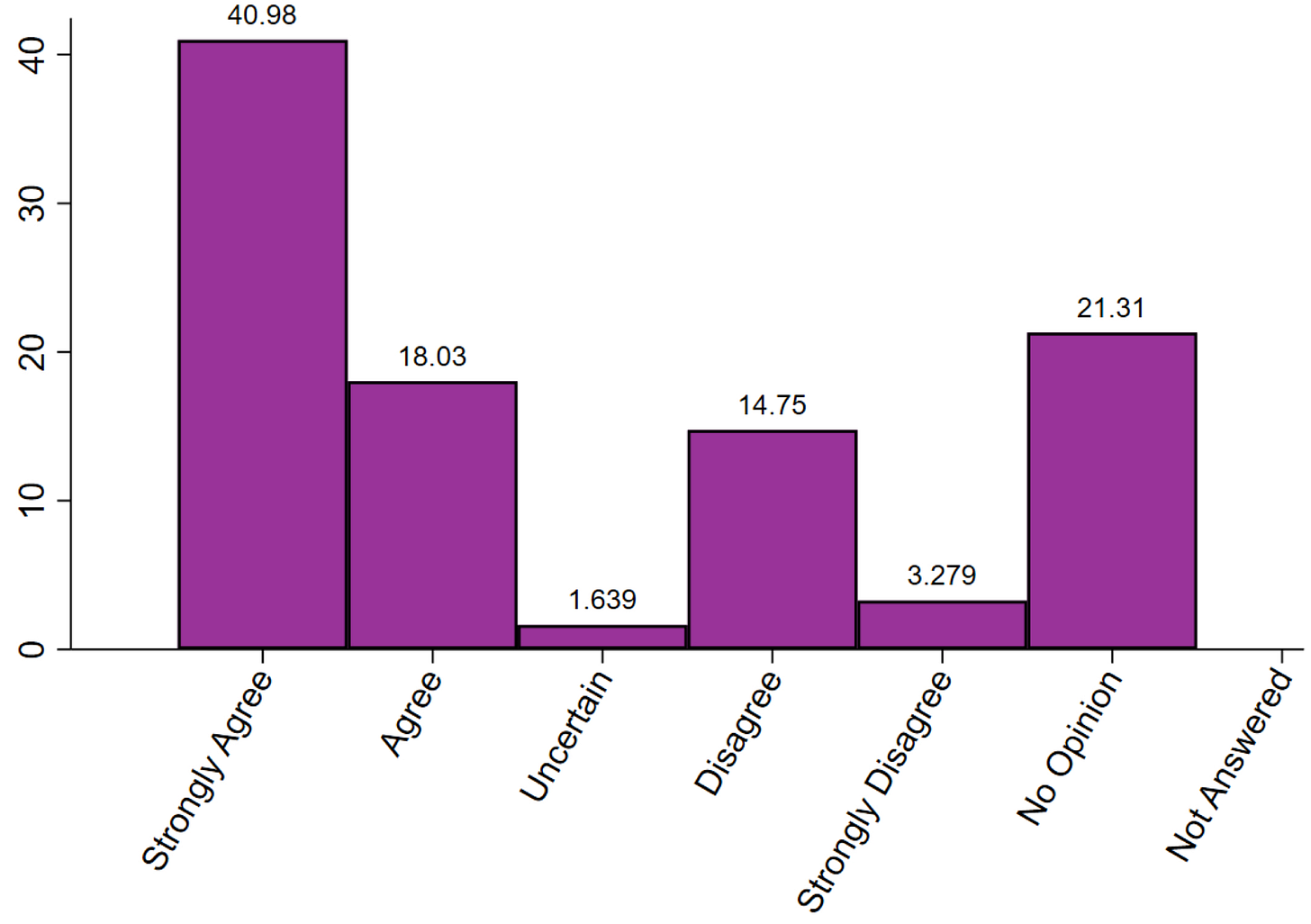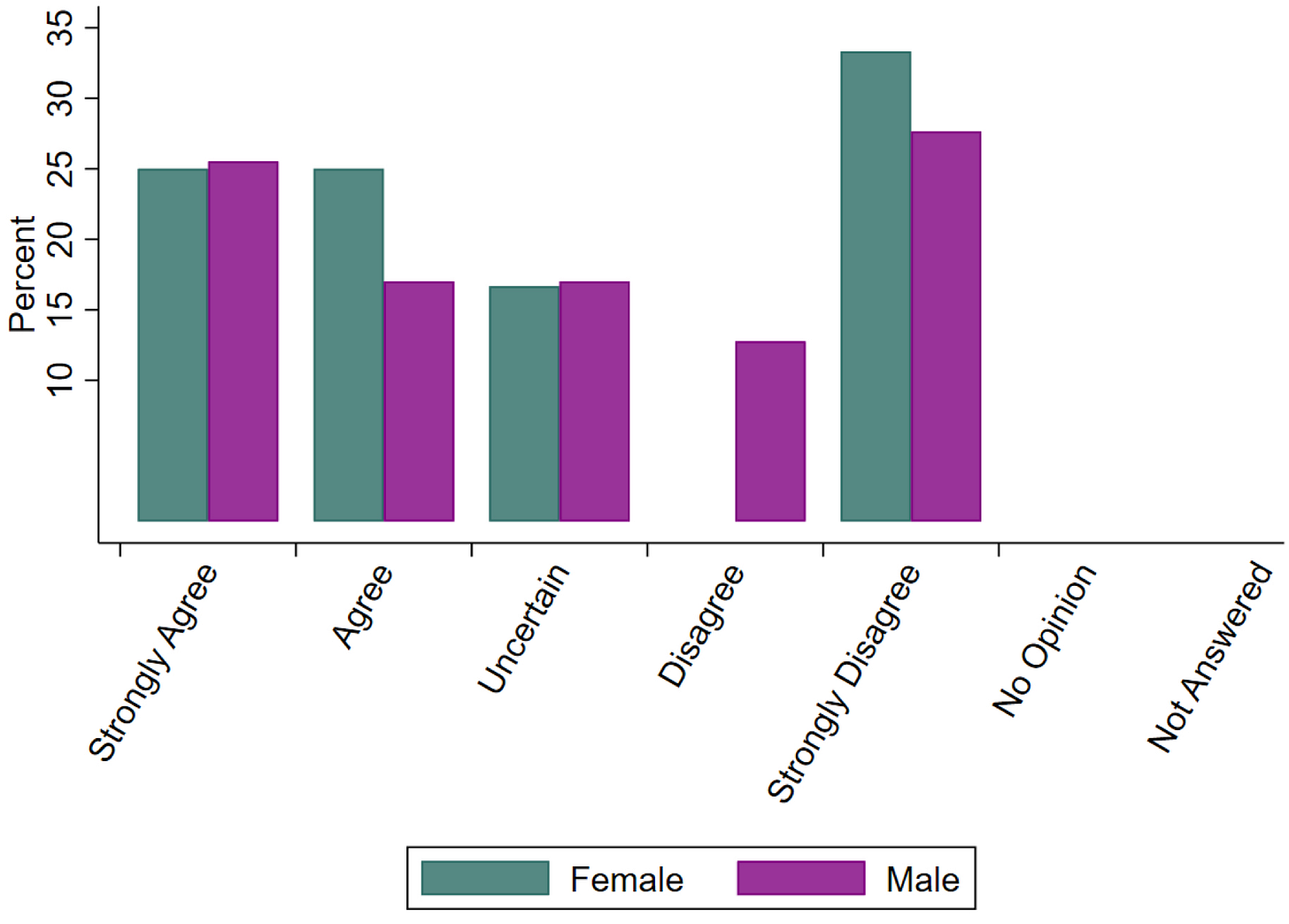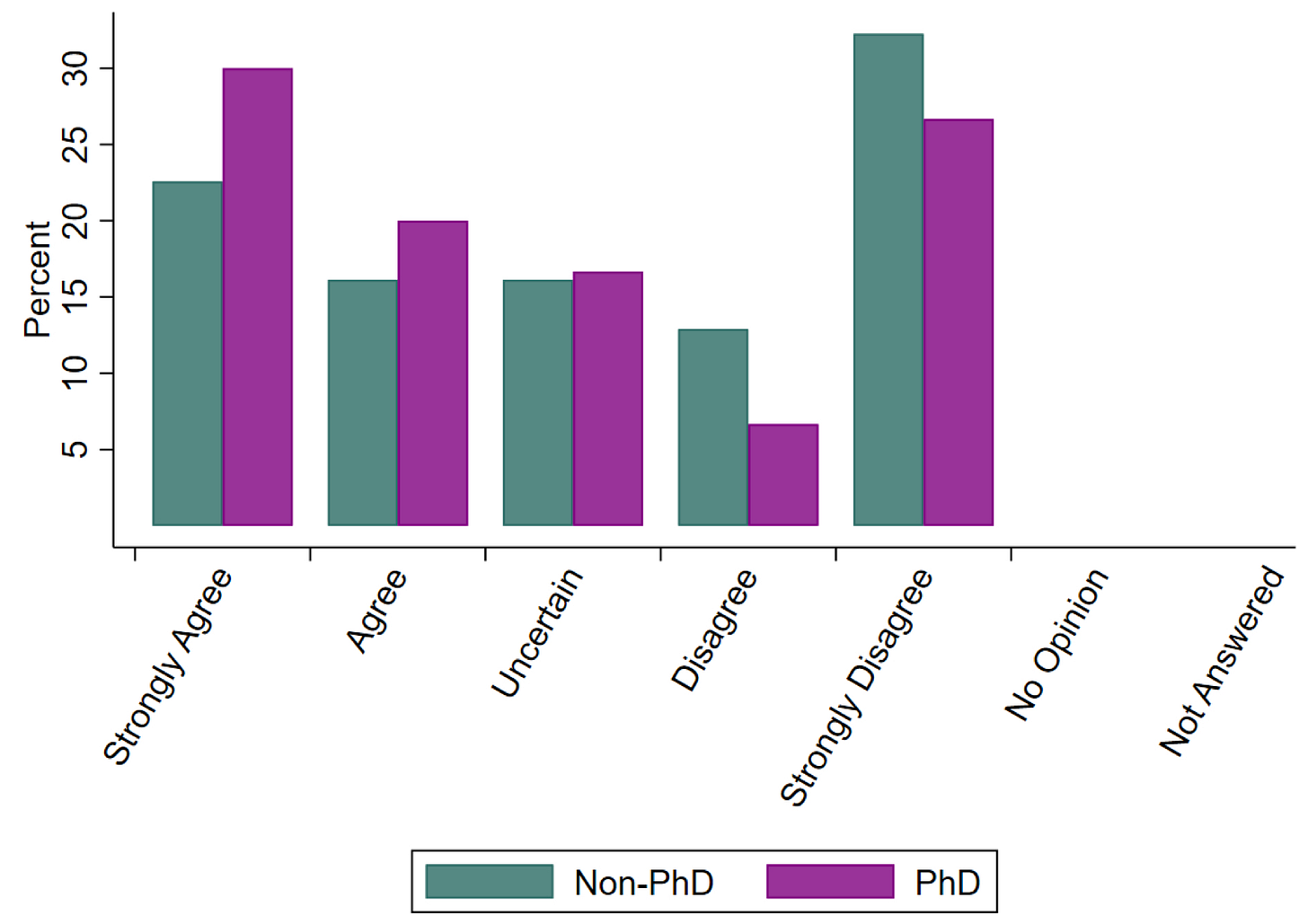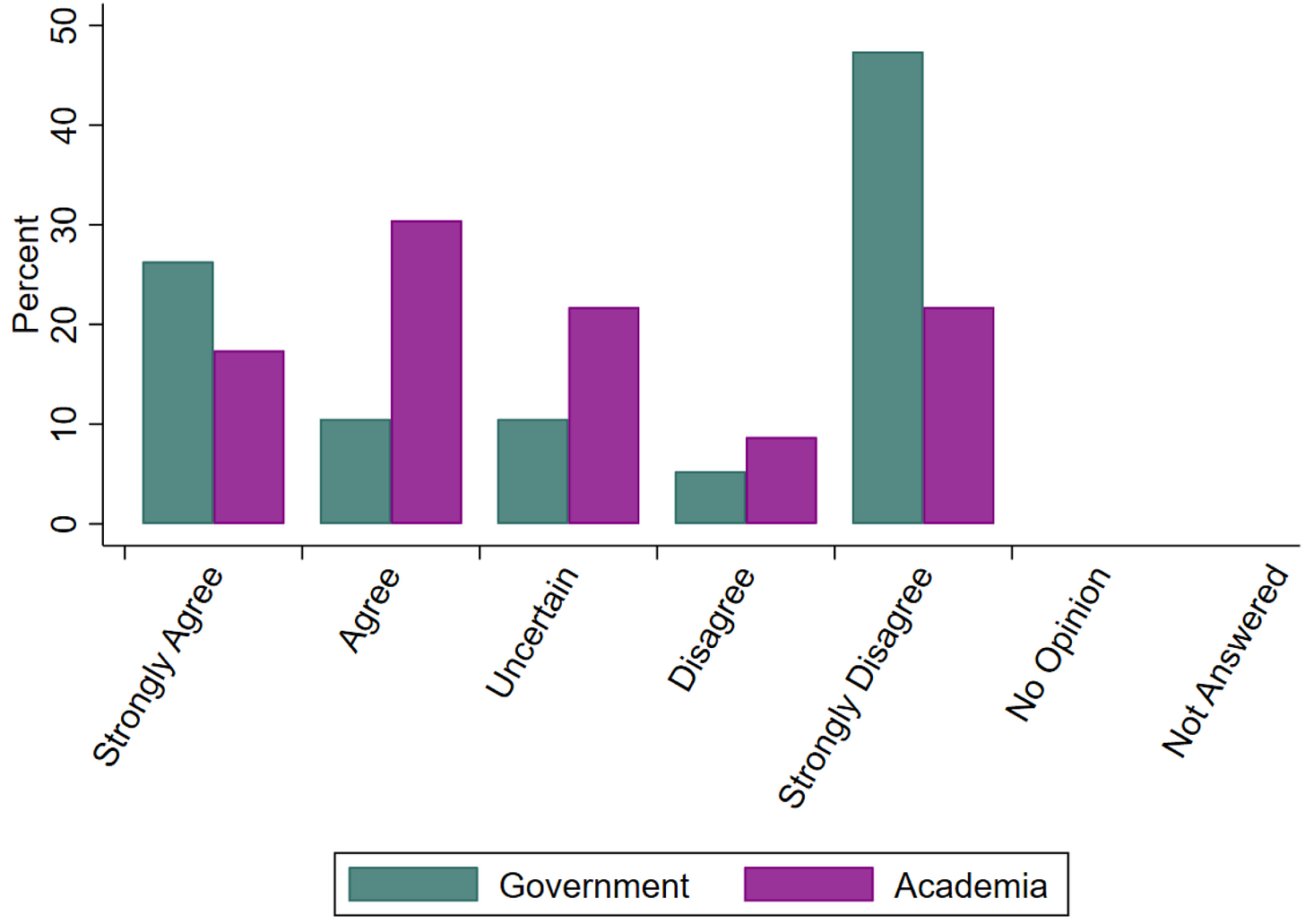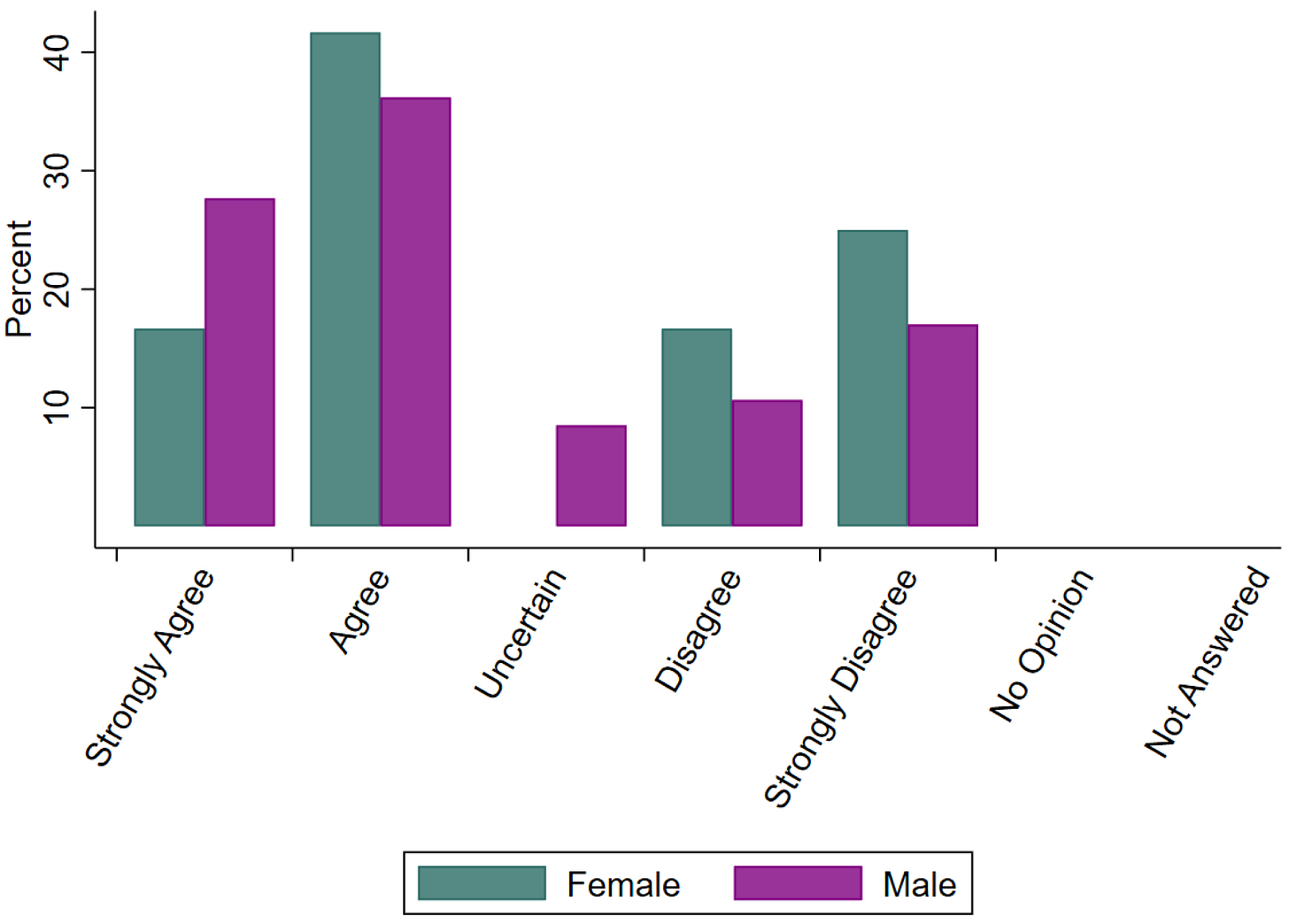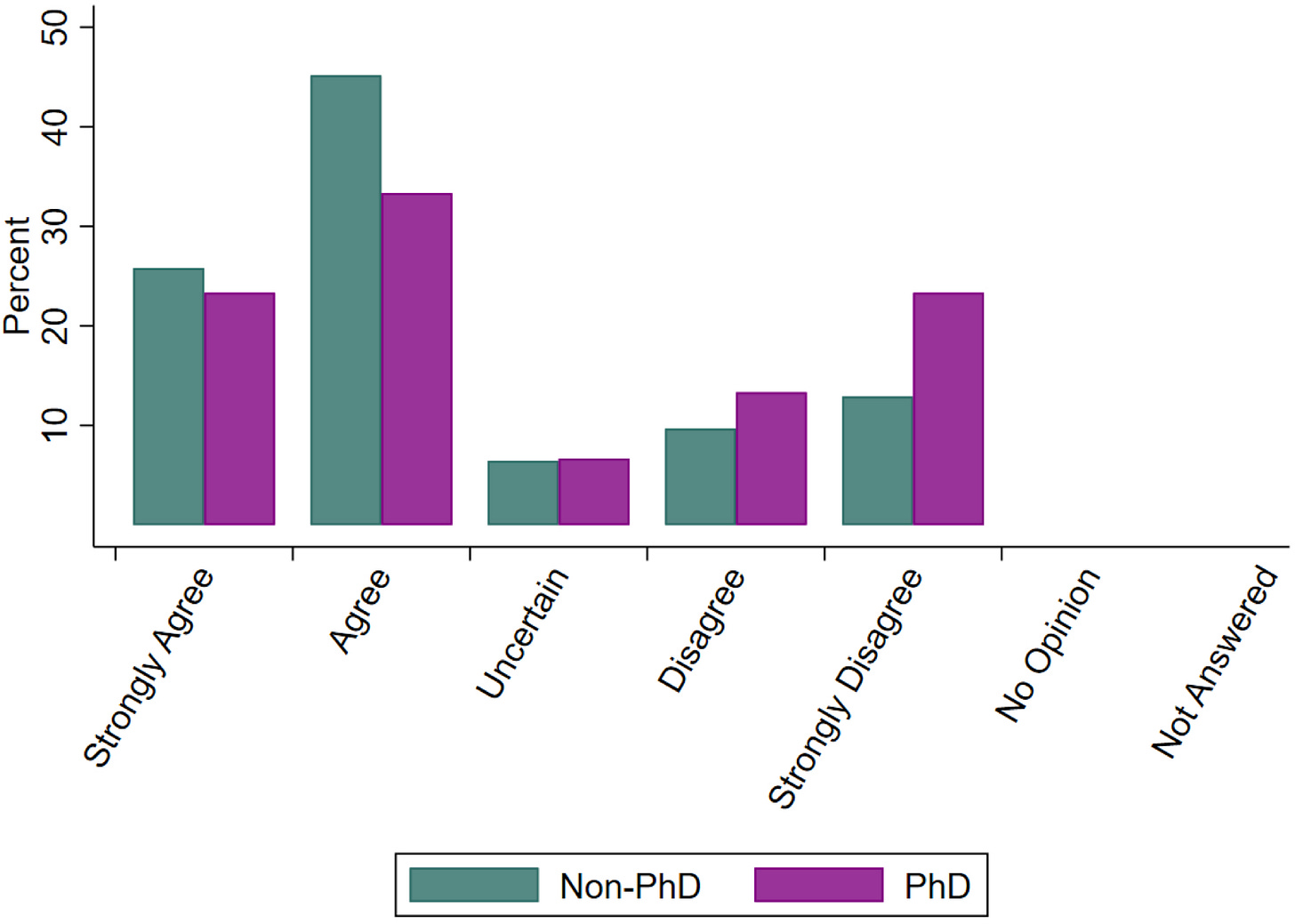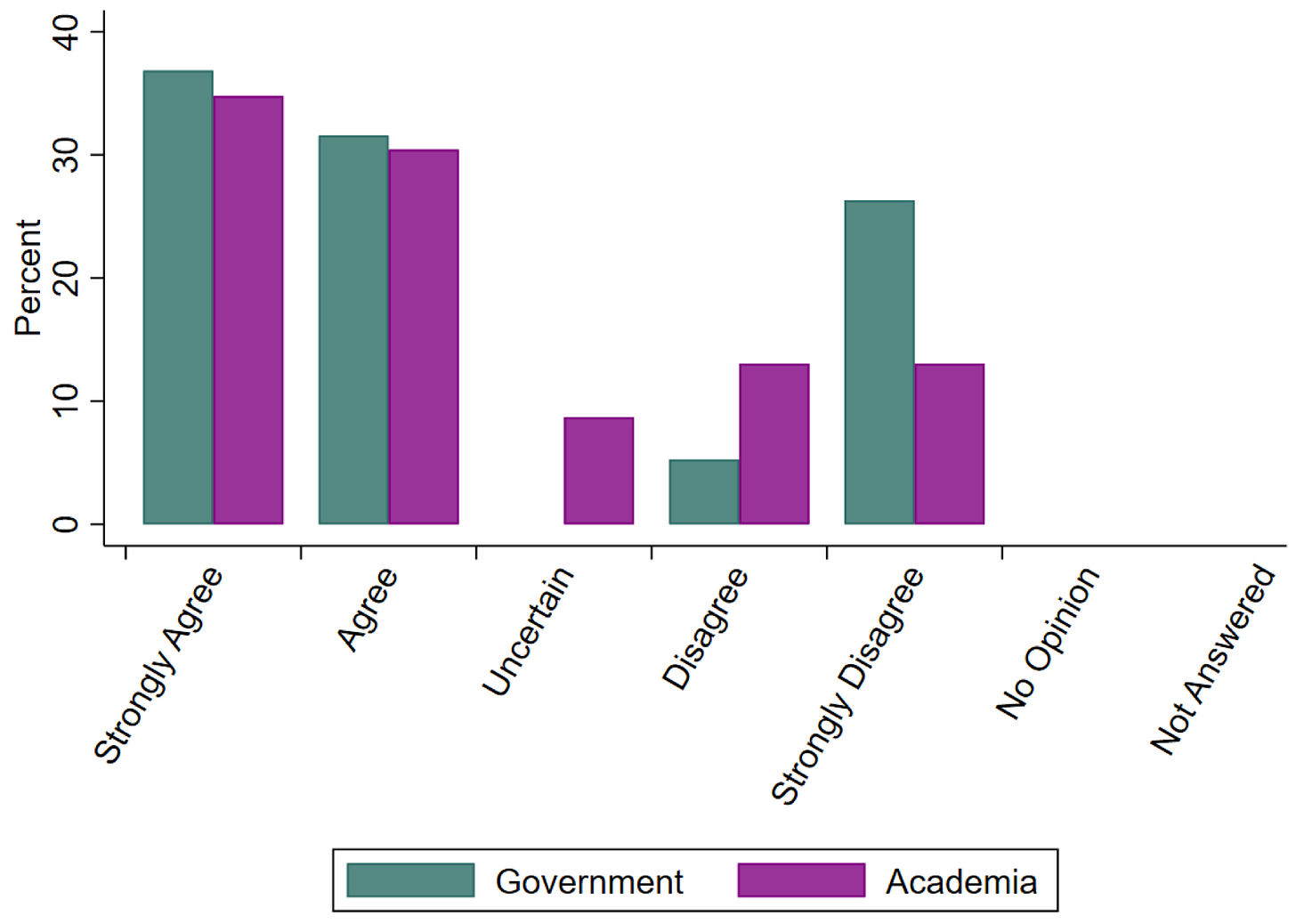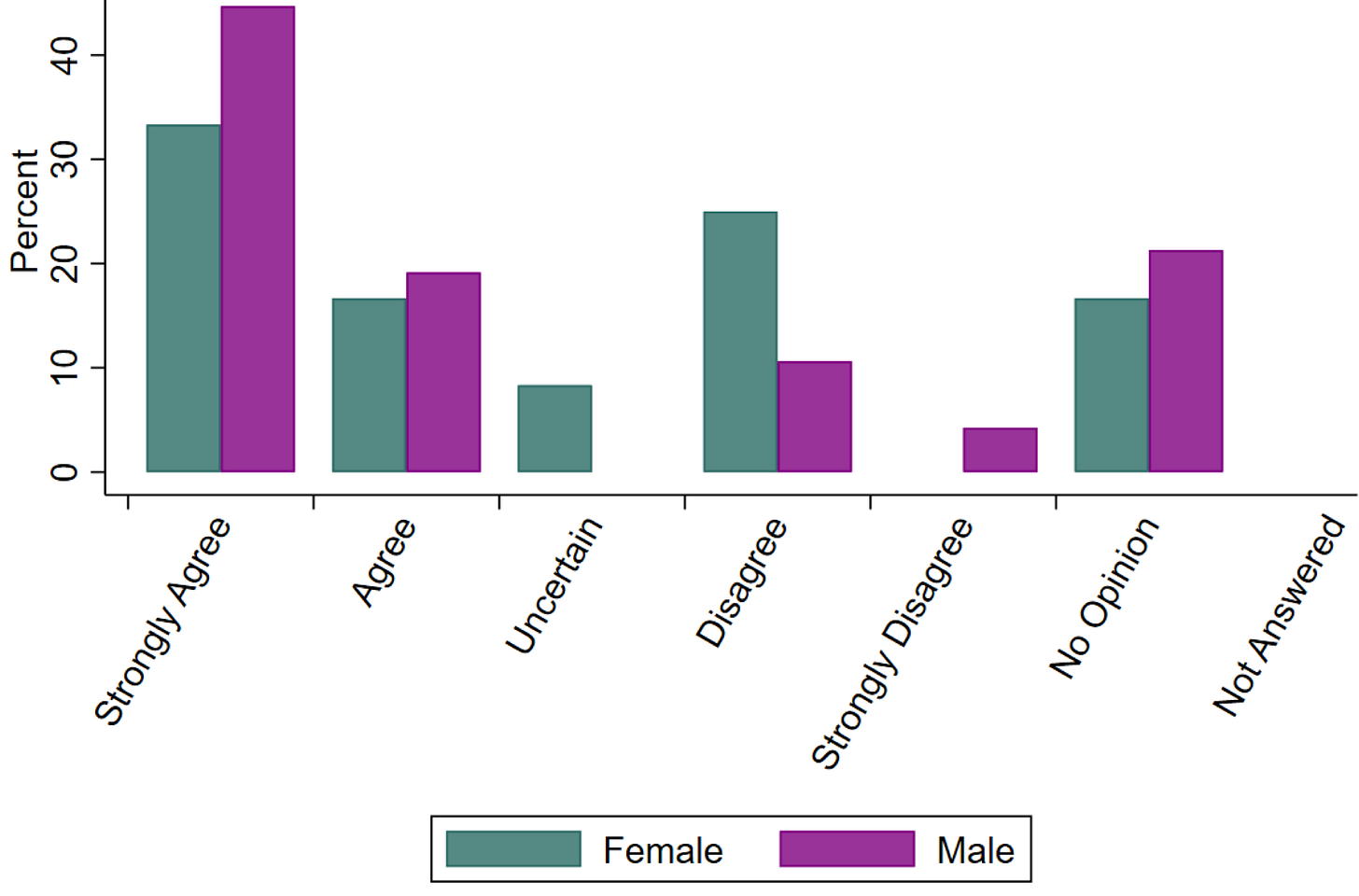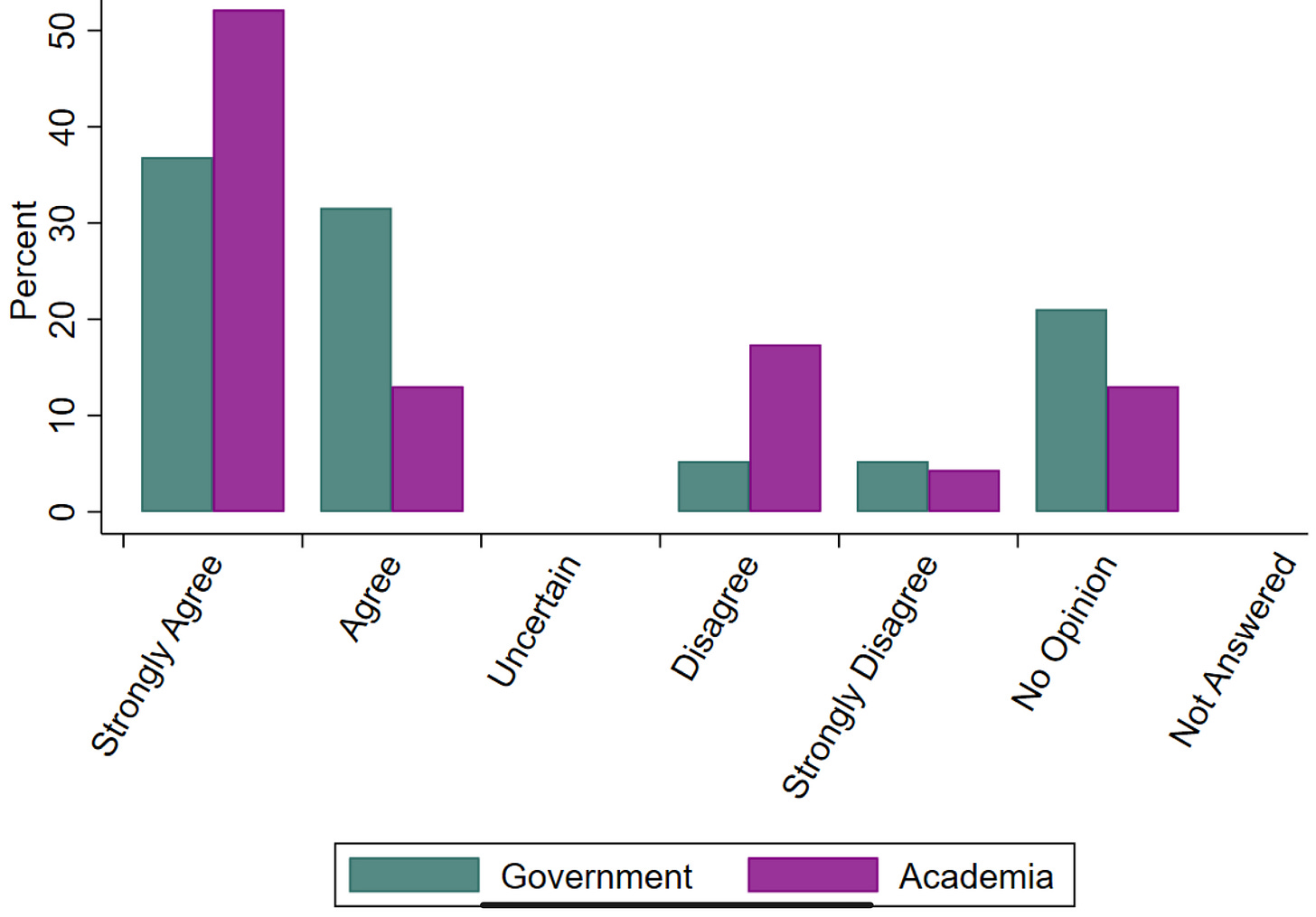For the first NZAE Member Survey we decided to go with labour market topics. We asked two questions on low-skilled migration and one on unemployment benefits.
The survey was circulated amongst NZAE members on July 11th and was open until July 15th. Sixty-one respondents answered the survey. 80% were male; and half held a PhD. Most respondents worked in academia (38%) or government (31%). Fifty-seven percent were aged over 50; and 61% have more than 20 years of experience.
Q1 Effect of low-skilled foreign workers on average NZers
The average New Zealand citizen would be better off if a larger number of low-skilled foreign workers were legally allowed to enter New Zealand each year.
30% of respondents strongly disagreed, while 26% strongly agreed. A very polarised response!
We found little difference in opinion across gender1, but there were noticeable differences by education and employment sector. PhD respondents were more likely to strongly agree that low-skilled migration will benefit Kiwis, while non-PhD holders are more likely to strongly disagree.2 Opinions were most polarized between respondents working in the government sector and academia. Most respondents in academia agreed that migration is beneficial, while almost 50% of respondents working in the government strongly disagreed.3
By contrast, a US expert academics survey reported that 52% of respondents agreed or strongly agreed that migration is beneficial, with just 9% disagreeing or strongly disagreeing.
Q2 Effect of low-skilled foreign workers on low-skilled NZ workers
Unless they were compensated by others, many low-skilled New Zealand workers would be substantially worse off if a larger number of low-skilled foreign workers were legally allowed to enter New Zealand each year.
In a US expert survey, 50% agreed or strongly agreed that local workers would be worse of without such compensation. In our survey, more than 60% agreed or strongly agreed with the statement. Responses were quite polarised though, with 30% disagreeing or strongly disagreeing.
There was little difference by gender4, but relatively more PhD holders disagree and strongly disagree5. Further, more government-employed respondents strongly disagree (about 30%) with the statement, compared to respondents in academia (about 10%).6
Q3. Unemployment and benefit payments
Increasing the level or duration of unemployment benefit payments will increase the level and average duration of unemployment.
Almost 60% of respondents agreed or strongly agreed with this statement. Responders were less polarised on this topic than immigration.
Males were more likely to agree than females.7 While we find little differences in the PhD vs. non-PhD comparison,8 Respondents in academia are more likely to strongly agree, compared to those in government.9
The next NZAE survey should soon hit members’ inboxes, featuring questions on rent control, high-skilled migration, and modern monetary theory.




